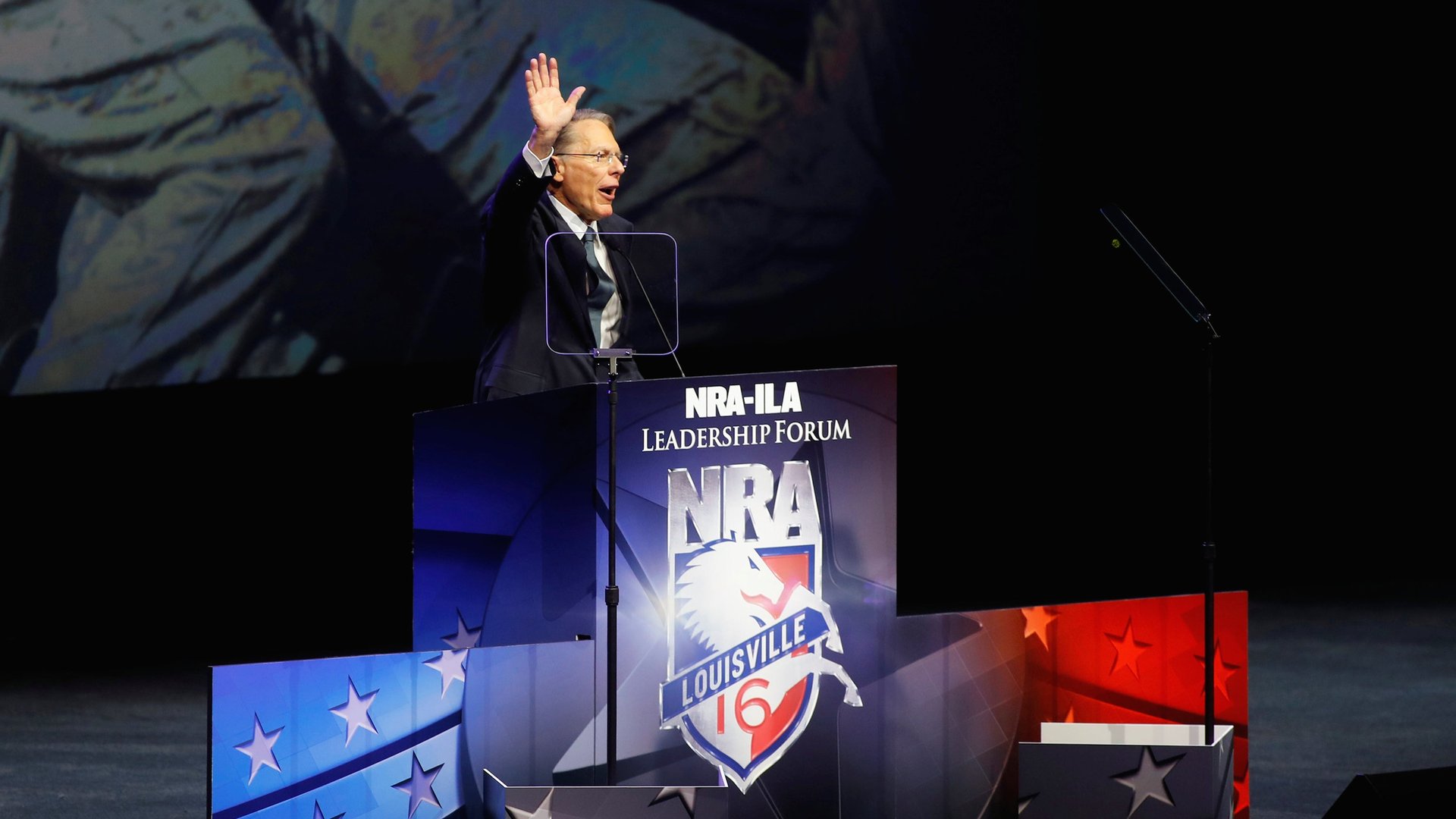NRA: Gun sales to anyone on a terror watch list should be investigated, delayed
With US gun control legislation under renewed public scrutiny after a brutal mass shooting in Orlando, the National Rifle Association issued a statement Wednesday (June 15) saying that anyone on a terror watch list who tries to by a firearm should be “investigated by the FBI and the sale should be delayed.” News of the statement was first reported by Reuters.


With US gun control legislation under renewed public scrutiny after a brutal mass shooting in Orlando, the National Rifle Association issued a statement Wednesday (June 15) saying that anyone on a terror watch list who tries to by a firearm should be “investigated by the FBI and the sale should be delayed.” News of the statement was first reported by Reuters.
According to the nonpartisan Congressional Research Service, being on a terror watch list is not “in and of itself a disqualifying factor” for people buying firearms and explosives. The FBI is alerted when an individual on a list applies to purchase a weapon, but the sale itself is not necessarily stopped. Omar Mateen, the man who shot and killed 49 people at Pulse, a gay nightclub in Orlando, Florida, on June 12, was able to purchase a Sig Sauer .223 caliber assault rifle on June 4 and a Glock 17 on June 5 despite being previously investigated by the FBI on two occasions for alleged terrorist links. He had been removed from a federal terror watch list by the time he purchased the guns.
The statement by the NRA—the US gun-manufacturing industry’s chief lobbying organization—appears to have been issued in response to a pledge by presumptive Republican presidential nominee Donald Trump to meet with the group to discuss the issue of the watch list.
“We are happy to meet with Donald Trump,” Chris W. Cox, executive director of the NRA’s Institute for Legislative Action, said in the statement. “The NRA’s position on this issue has not changed. The NRA believes that terrorists should not be allowed to purchase or possess firearms, period. Anyone on a terror watch list who tries to buy a gun should be thoroughly investigated by the FBI and the sale delayed while the investigation is ongoing.”
Previous attempts to beef up measures that would stop people suspected of terrorism from being able to buy guns have stalled as the Senate has debated how to deal with people wrongfully placed on the list. Last year, the NRA formally backed an idea brought by Senate Republicans that would vest individual judges with the power to pull wrongly accused people off terror watch lists, subsequently empowering them to purchase firearms no differently than ordinary citizens. Democrats would prefer to give that authority to the Justice Department. As a result, a Dec. 2015 bill drafted in response to the shootings in San Bernardino, California, in which 14 people died, and sponsored by that state’s Democratic senator Dianne Feinstein, was voted down 54-45.
At the time, it appeared the NRA was content with the system in place. “Under the current system, law enforcement is notified every time a person on the list attempts to purchase a firearm. Law enforcement then makes a case by case decision on the appropriate follow-up for each circumstance,” Jennifer Baker, the group’s director of public affairs, said in a statement regarding the bill. “The NRA’s only objective is to ensure that Americans who are wrongly on the list are afforded their constitutional right to due process.”
Cox reiterated in his statement Wednesday that “due process protections should be put in place that allow law-abiding Americans who are wrongly put on a watch list to be removed.”
Cox’s statement came a few hours after Connecticut lawmaker Chris Murphy mounted a gun-control filibuster in the Senate, still ongoing at the time of writing, that would keep suspected terrorists from purchasing guns and institute universal background checks on gun buyers.
“I’m going to remain on this floor until we get some signal, some sign that we can come together on these two measures, that we can get a path forward on addressing this epidemic in a meaningful, bipartisan way,” Murphy’s address began.